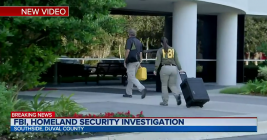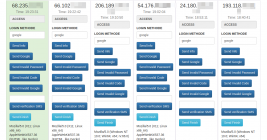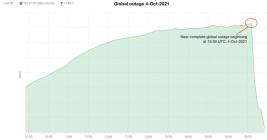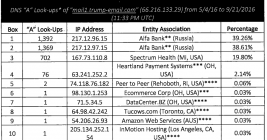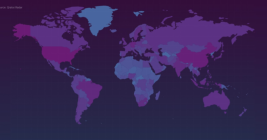Category Archives: A Little Sunshine
FBI Raids Chinese Point-of-Sale Giant PAX Technology
U.S. federal investigators today raided the U.S. offices of PAX Technology, a Chinese provider of point-of-sale devices used by millions of businesses and retailers globally. KrebsOnSecurity has learned the raid is tied to reports that PAX’s systems may have been involved in cyberattacks on U.S. and E.U. organizations.
Missouri Governor Vows to Prosecute St. Louis Post-Dispatch for Reporting Security Vulnerability
On Wednesday, the St. Louis Post-Dispatch ran a story about how its staff discovered and reported a security vulnerability in a Missouri state education website that exposed the Social Security numbers of 100,000 elementary and secondary teachers. In a press conference this morning, Missouri Gov. Mike Parson (R) said fixing the flaw could cost the state $50 million, and vowed his administration would seek to prosecute and investigate the “hackers” and anyone who aided the publication in its “attempt to embarrass the state and sell headlines for their news outlet.”
How Coinbase Phishers Steal One-Time Passwords
A recent phishing campaign targeting Coinbase users shows thieves are getting cleverer about phishing one-time passwords (OTPs) needed to complete the login process. It also shows that phishers are attempting to sign up for new Coinbase accounts by the millions as part of an effort to identify email addresses that are already associated with active accounts.
What Happened to Facebook, Instagram, & WhatsApp?
Facebook and its sister properties Instagram and WhatsApp are suffering from ongoing, global outages. We don’t yet know why this happened, but the how is clear: Earlier this morning, something inside Facebook caused the company to revoke key digital records that tell computers and other Internet-enabled devices how to find these destinations online.
FCC Proposal Targets SIM Swapping, Port-Out Fraud
The U.S. Federal Communications Commission (FCC) is asking for feedback on new proposed rules to crack down on SIM swapping and number port-out fraud, increasingly prevalent scams in which identity thieves hijack a target’s mobile phone number and use that to wrest control over the victim’s online identity.
Indictment, Lawsuits Revive Trump-Alfa Bank Story
In October 2016, media outlets reported that data collected by some of the world’s most renowned cybersecurity experts had identified frequent and unexplained communications between an email server used by the Trump Organization and Alfa Bank, one of Russia’s largest financial institutions. Those publications set off speculation about a possible secret back-channel of communications, as well as a series of lawsuits and investigations that culminated last week with the indictment of the same former federal cybercrime prosecutor who brought the data to the attention of the FBI five years ago.
KrebsOnSecurity Hit By Huge New IoT Botnet “Meris”
On Thursday evening, KrebsOnSecurity was the subject of a rather massive (and mercifully brief) distributed denial-of-service (DDoS) attack. The assault came from “Meris,” the same new “Internet of Things” (IoT) botnet behind record-shattering attacks against Russian search giant Yandex this week and internet infrastructure firm Cloudflare earlier this summer.
“FudCo” Spam Empire Tied to Pakistani Software Firm
In May 2015, KrebsOnSecurity briefly profiled “The Manipulaters,” the name chosen by a prolific cybercrime group based in Pakistan that was very publicly selling spam tools and a range of services for crafting, hosting and deploying malicious email. Six years later, a review of the social media postings from this group shows they are prospering, while rather poorly hiding their activities behind a software development firm in Lahore that has secretly enabled an entire generation of spammers and scammers.
Gift Card Gang Extracts Cash From 100k Inboxes Daily
Some of the most successful and lucrative online scams employ a “low-and-slow” approach — avoiding detection or interference from researchers and law enforcement agencies by stealing small bits of cash from many people over an extended period. Here’s the story of a cybercrime group that compromises up to 100,000 email inboxes per day, and apparently does little else with this access except siphon gift card and customer loyalty program data that can be resold online.




